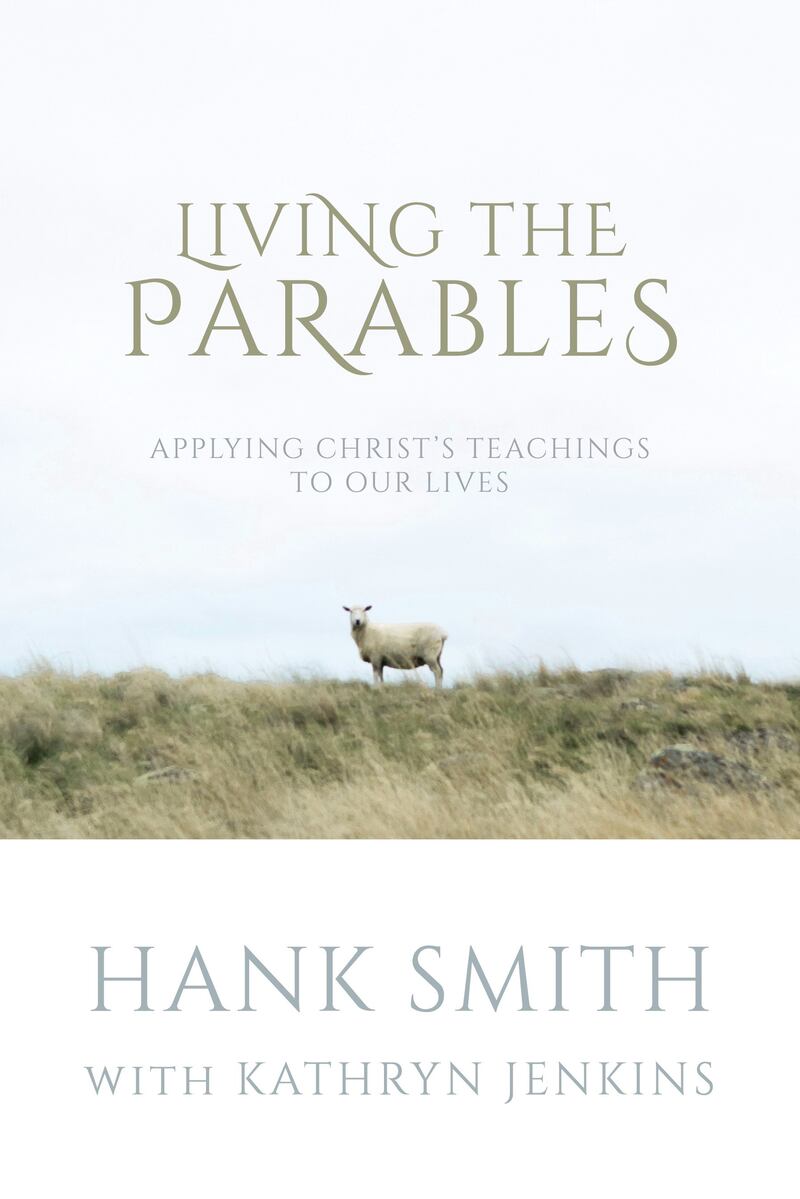Long before Hank Smith became a gospel teacher, speaker and author, he spent hours watching his father give golf lessons.
Michael Smith, a professional golfer in St. George, often used humor, encouragement and asked questions to find out what his students understood.
When Hank Smith’s seminary supervisor, Russ Bulloch, had a golf lesson from his father, he noticed something.
“I finally see where you learned to teach,” Bulloch said. “You teach just like him.”
Hank Smith realized Bulloch was right.
“I didn’t realize how much of an impact my father had on my teaching until I became a seminary teacher,” Smith said. “My dad obviously taught me many life lessons, but as a teacher I think I learned how much fun teaching can be. It is genuinely exciting for me to see someone understand something for the first time, especially if that ‘something’ helps them with life’s biggest problems.”
Grateful for his father’s tutelage, Smith has used those acquired techniques and approach in writing his latest book with Kathryn Jenkins, “Living the Parables: Applying Christ’s Teachings To Our Lives,” which draws upon profound words delivered by the master teacher, the Savior Jesus Christ.
“Your problems are real. Your tears are real. Your heartache is real. You face things that nobody on the earth can truly understand,” Smith wrote in the book’s introduction. “The parables of Jesus Christ will help you with your problems.”
Smith, a BYU assistant professor in the Religious Studies Department, recently discussed the parables, his book and one essential aspect of teaching in an interview with the Deseret News.
This interview has been edited for length and clarity.
Deseret News: Whether it’s social media, speaking or describing a concept in a book, I’ve noticed you like to incorporate a lot of humor in your material. In years of teaching, what have you noticed about the difference humor can make in teaching the gospel?
Hank Smith: I do love to use humor. I definitely use more than I need to in order to keep teens interested. I just like to laugh and I love to make people laugh. Whether I’m speaking to a school, a corporation or a church group, I fill my presentations with jokes, side comments and one-liners aimed at getting a laugh.
I think it eases the tension, helps keep attention and makes the content a little more palatable, especially with youth. I use a lot of humor on the talks I record for Seagull Book. I’ve had many parents tell me their children open up to the message because of the humor. They’ll pretend they’re not listening, but then smile or laugh at one of the jokes or stories; pretty soon they are listening or even asking for another talk.
So humor seems to open a hardened heart at times. The Spirit speaks to us in our own language, right? Many of us understand the language of humor so of course the Spirit can speak to us through it. My overarching goal is to help people come closer to Christ, both in character and relationship, and I’ve found humor to be an effective tool to reach that goal.

DN: What inspired you to write this book, “Living the Parables?”
HS: I came to BYU in 2010 and have taught the first half of the New Testament, the four gospels, almost every semester since then. I feel thankful that I get to study and teach the New Testament as a career. As I’ve taught the Savior’s parables to thousands of students, I’ve had the opportunity to dig into the details of each parable. I’ve been able to look at them in the context of the ancient world. I’m in awe that they never get old. I still find new insights and applications. It is quite incredible that we study 2,000-year-old stories looking for help in our time. How many 2,000-year-old books do you have on your phone? I’m guessing not very many. The parables are a big part of why the Bible has had the lifespan that it has had.
Through teaching them every semester I’ve come to realize that we have a gold mine of insights in these stories. Insights which can literally change your life. They can change the way you think about your relationships, your understanding of the nature of God, and what to do about your most serious decisions and problems. I guess I’ve fallen in love with the parables and I wanted to share all the life changing insights I’ve found.
Kathy is a first-rate editor, historian, and scriptorian so she was the perfect partner for this project.
DN: What do you feel sets it apart from other books about the parables of Jesus?
HS: I think the book is unique in that I’ve tried to combine a serious look at the context and history of the parables along with modern-day applications. I didn’t want the book to be all context and history. Understanding scriptural texts in their original context is crucial to serious scripture study, but I wanted it to be more than informative.
At the same time, it couldn’t be all application. We limit how much the scriptures can bless our lives if we move straight to application without trying to understand the text the way the author intended and how the intended audience would have heard it. We have to enter the ancient world in order to find principles for the modern world. I think we ended up striking the balance we were hoping for. For example, the reader will understand ancient Jewish wedding traditions and at the same time understand how the Parable of the Ten Virgins can impact daily decisions.
DN: Is there one parable that personally means a little more to you than the others? If so, why?
HS: I love the Parable of Lazarus and the Rich Man. I get so excited to teach it. It’s not one of the more well-known of Jesus’ parables so most people haven’t ever taken a serious look at it. It has a lot of emotion. As you read, you feel for Lazarus, your heart hurts for him and the situation he is in. You feel so happy for him when you see him in heaven in “Abraham’s bosom.” Then there’s the rich man, you learn more and more about him as the parable unfolds. You come to really dislike him and his selfishness. The irony found throughout the parable is striking. You have crumbs of food compared to drops of water, you have feasts on earth and feasts in heaven. The surprising twist at the end is that you discover that you are more like the rich man than Lazarus. You are the antagonist in the story and if you don’t make some changes, you’ll end up in the same position he is in. It’s simply incredible. I’m getting excited about it in just answering your question!



DN: What else would you like people to know about this book?
HS: I hope people will give it a try. If nothing else, I hope it connects them to the parables in a way they’ve never experienced. As you read the Savior’s stories, you can get to know him better. I frequently tell my students that we don’t just want to know “about” Jesus, we want to get to know Him. I hope the book helps people do just that.





